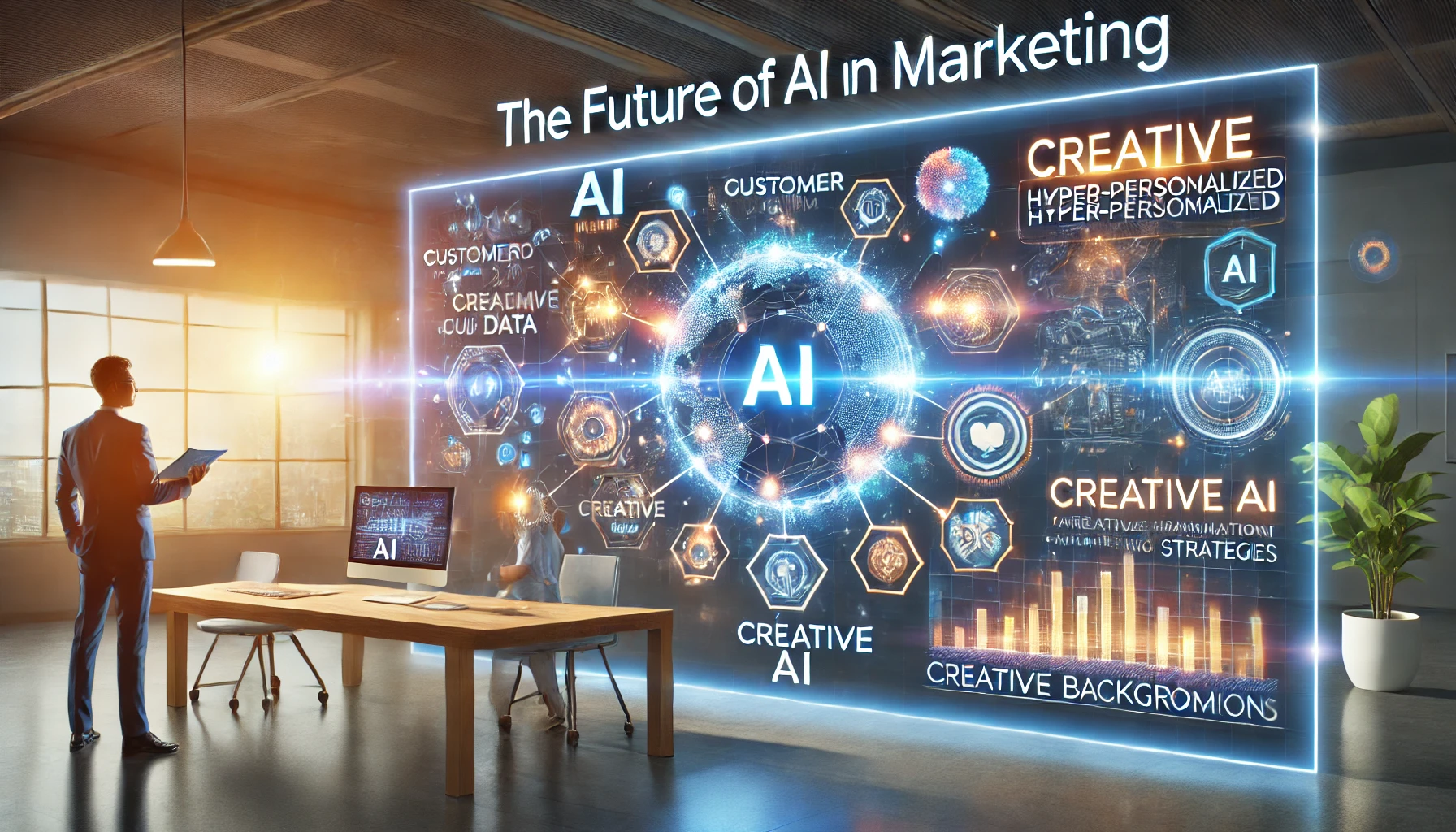Transforming Strategies, Personalising Experiences, and Driving Growth
What does the future hold for Artificial intelligence (AI) in marketing? What was once considered a futuristic concept is now a driving force behind some of the most innovative and effective marketing strategies. AI is not just automating tasks; it’s enabling marketers to understand customers better, predict behaviours, and create personalised experiences. AI is revolutionising the marketing industry at an unprecedented pace. Let us explore the possibilities and trends shaping the next era of transformative technology.
1. Hyper-Personalization at Scale
One of AI’s most significant contributions to marketing is its ability to deliver hyper-personalized experiences. By analyzing vast amounts of customer data, AI can segment audiences and tailor content, recommendations, and interactions to individual preferences.
The Future Outlook:
- Dynamic Content Creation: AI tools like ChatGPT can already generate content, but future iterations will deliver real-time, highly contextual content that adapts to user behavior in the moment.
- Predictive Personalization: AI will use predictive analytics to anticipate what customers want before they even know it, driving engagement and loyalty.
- Multichannel Integration: Personalization will seamlessly span all touchpoints—from email and social media to in-store interactions.
Marketers who leverage AI for personalization will be able to build stronger relationships with their audiences while standing out in a crowded digital landscape.
2. AI-Powered Customer Insights
AI’s ability to process and interpret data is unparalleled. With tools that analyze customer behavior, market trends, and competitor strategies, marketers can make data-driven decisions faster and with greater accuracy.
The Future Outlook:
- Emotion Recognition: Advanced AI will interpret not only what customers are saying but how they feel, using sentiment analysis and emotion recognition to refine messaging.
- Real-Time Analytics: Marketing strategies will be increasingly driven by real-time insights, allowing campaigns to be adjusted on the fly for maximum impact.
- Deeper Market Segmentation: AI will identify niche audience segments and uncover new opportunities that might otherwise go unnoticed.
The future of AI in marketing will empower brands to understand their audiences on a deeper level than ever before, enabling more meaningful and relevant campaigns.
3. Generative AI for Creative Processes
Generative AI, such as tools for image, video, and text creation, is already reshaping how marketing teams approach creative work. The next wave of innovation will integrate these tools more deeply into the creative process.
The Future Outlook:
- Visual Content at Scale: AI will produce high-quality visuals, videos, and even virtual environments tailored to specific campaigns or audience preferences.
- Augmented Reality (AR) Experiences: AI will combine with AR to create immersive brand experiences, allowing customers to interact with products virtually.
- Brand Consistency: Generative AI will ensure that creative outputs align with a brand’s tone, style, and values, maintaining consistency across channels.
Marketers who adopt AI for creative work will save time, reduce costs, and unlock new possibilities for engaging content.
4. Conversational AI and Chatbots
AI-driven chatbots and virtual assistants are becoming increasingly sophisticated, offering more human-like interactions and improving customer service.
The Future Outlook:
- Voice Search Optimization: As voice search continues to grow, AI-powered assistants will play a larger role in marketing strategies, requiring businesses to optimize their content accordingly.
- Proactive Assistance: Future chatbots will anticipate customer needs and provide proactive recommendations, turning service interactions into sales opportunities.
- Human-AI Collaboration: AI will enhance, not replace, human agents, providing real-time suggestions and information to improve customer interactions.
The evolution of conversational AI will create smoother, more intuitive experiences that enhance customer satisfaction and drive conversions.
5. Ethical AI in Marketing
As AI becomes more integrated into marketing, ethical considerations will take center stage. Issues like data privacy, algorithmic bias, and transparency will shape how marketers use AI responsibly.
The Future Outlook:
- Ethical Data Use: Companies will need to prioritize transparency and secure data-handling practices to build trust with their audiences.
- Bias Mitigation: Advanced AI tools will include features to detect and mitigate bias, ensuring fair and inclusive marketing.
- Regulatory Compliance: Marketers will need to stay ahead of evolving regulations to avoid reputational risks and penalties.
Ethical AI practices won’t just be a requirement—they’ll be a competitive advantage for brands that prioritize trust and integrity.
6. AI-Driven Automation
AI will continue to streamline marketing operations by automating repetitive tasks, freeing up teams to focus on strategy and creativity.
The Future Outlook:
- Campaign Management: AI will automate entire marketing workflows, from ad placement and budget optimization to performance tracking and reporting.
- Lead Scoring: AI tools will identify and prioritize high-quality leads, allowing sales teams to focus their efforts where it matters most.
- Enhanced CRM Integration: AI will make customer relationship management systems smarter, improving customer retention and satisfaction.
Automation powered by AI will increase efficiency and drive better results, making marketing efforts more effective across the board.
Conclusion: Embracing the AI-Powered Future
The future of AI in marketing is bright, promising unprecedented opportunities for personalization, creativity, and efficiency. However, success will depend on how well marketers balance innovation with ethical practices and a deep understanding of their customers.
To stay ahead, marketers must:
- Continuously invest in AI tools and technologies.
- Stay informed about emerging trends and best practices.
- Prioritize authenticity and transparency in every interaction.
AI is not just a tool; it’s a partner in building meaningful connections with customers. By embracing its potential, the marketing industry can not only adapt to the future but help shape it.
Are you ready to harness the power of AI in your marketing strategies? Let’s start the conversation today.


Leave a Reply